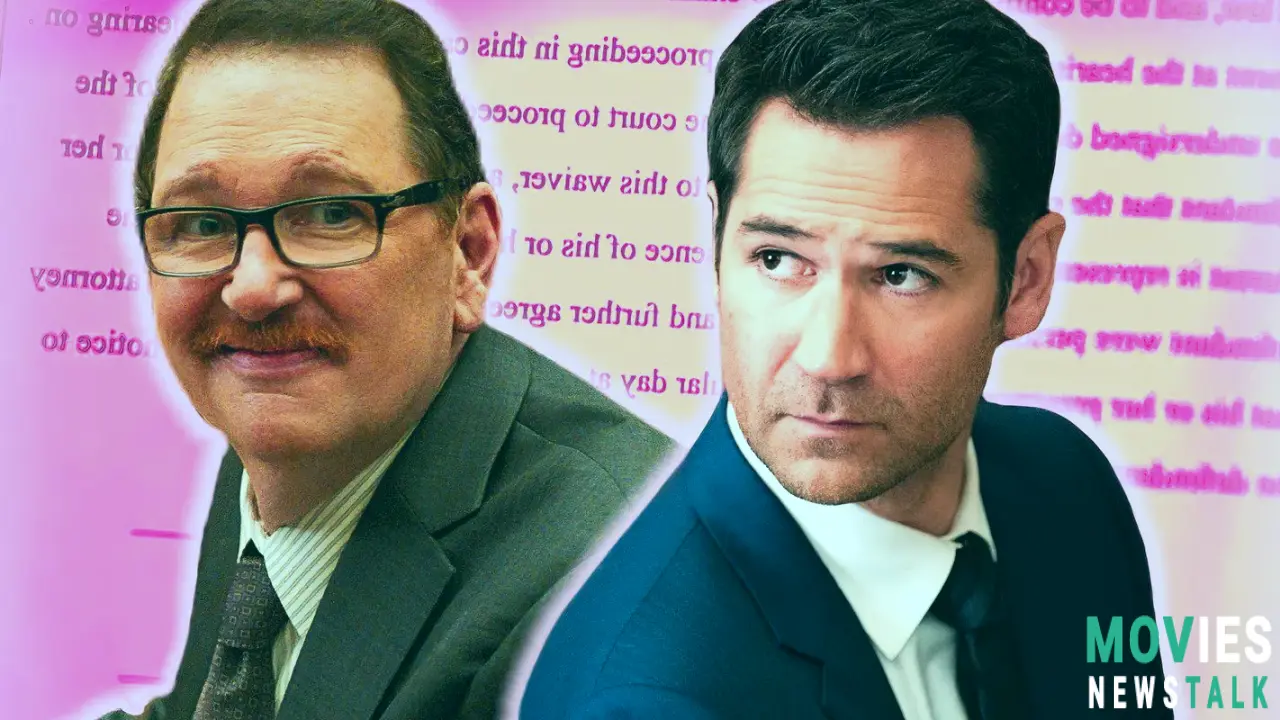The Lincoln Lawyer Season 3 Finale: Unpacking the "Trial in Absentia" Twist!
The Lincoln Lawyer Season 3 Finale: A Legal Loophole and Its Consequences
Netflix's The Lincoln Lawyer season 3 ended with a bang! It was totally intense, ending in a super-dramatic courtroom showdown. But get this, the entire thing hinges on a pretty tricky legal concept: "trial in absentia." For those unfamiliar, it's the practice of holding a trial without the defendant present—making for major plot twists that depend on knowing the details! This is super crucial and fans totally need to understand what happened.
The show's brilliant because it dives deep into the legal details – this includes the super complicated parts of the legal process! They smartly change these things sometimes, mostly to give greater drama and excitement— making the series more tense; adding elements to increase the importance of several episodes throughout that season! However, the entire thing remains surprisingly realistic; reflecting just how crazy real legal processes are and those extremely difficult and tricky problems that emerge and often have to be resolved. This becomes exceptionally clear near the ending where this whole plotline comes into effect and this "trial in absentia" suddenly takes center stage!
Trial in Absentia: The Law and Its Loopholes
At the finale's climax, an inmate stabsJulian La Cosse—totally set up byDe MarcoandBishop(these corrupt masterminds attempting to get a mistrial, demonstrating how powerful corruption is)! ButMickey Hallerfights back! His actions, a powerful demonstration of how committed this defense attorney remains and those levels of commitment shown by doing things such as completely overriding a mistrial! And this totally involves making use of "trial in absentia", proceeding withoutJulianpresent! It's incredibly controversial – many believe this concept violates that sixth amendment, that crucial right for facing one's accusers. A key element, and also a very necessary context that helps people understand the deep complexity surrounding those kinds of choices!
There are some seriously important Supreme Court rulings on this that highlight its deeply problematic nature and the inherent difficulties: Crosby v. United Statesrules against "trial in absentia" if the defendant's not present at the trial's start. Smith v. Mannadds that absence needs to be voluntary. But Judge Turneroverlooks this problem and this incredibly serious, complicated moment results in the acceptance of the "waiver", because of that extremely unusual situation–it is made totally reasonable (a justification found nowhere in real-world scenarios!), as Mickeypresents a signedwaiverfromJulian. This gets further emphasized when hislife partner David confirms this in court and his evidence is deemed satisfactory and sufficient. It highlights just how important witnesses truly are in establishing facts during courtroom cases! Yet even these points get complicated!
Why Mickey Fought to Keep the Trial Going
Mickey'sactions completely emphasize those specific considerations to ensure a far better ending for his client! A lot is already going on and this particular situation brings out additional important considerations.
He senses the stabbing was intentional, meant to get a mistrial! That suggests they're closer to discovering those all-important truths!He realizes thatJudge Turneris really sympathetic—a former public defender. She could've stoppedMickeyin this case but gave plenty of opportunities; those moments highlight her sympathy; an incredibly fortunate turn for the entire defense team involved! Another trial might have a far more problematic outcome.
And he understands there's too much time and effort invested! A huge effort into that conspiracy defense. Plus a mistrial givesDe Marcomore time to intimidate witnesses, completely unraveling all the hard work fromMickey'sentire legal team. That "trial in absentia" is less a strategic decision and more of an acknowledgement that any additional process is not ideal and potentially extremely risky to take, without those crucial moments created through those particular developments found only at that unique time.
Mickey's Forged Waiver: A Risky Gambit and Future Troubles
Mickey'sforged waiver might look solved but presents huge risks!Forsythechallenges it– claimingJulian’sstill in critical condition. ButDavidlies–claiming that the signature is valid, something only established through a witness and further establishes that perjury isn’t considered a viable option during these intense situations and those high stakes being involved!
But this isn’t entirely gone. This waiver could return in season 4! Prosecutors may review past cases to justify the accusations against Mickey and find sufficient grounds to reopen this case! The bar association could also become involved after finding enough credible reasons and potentially evidence suggesting malfeasance – potentially highlighting perjury committed on the witness stand; or it is simply considered enough that they are willing to justify and bring forward another potential court case. This adds that huge layer of stress that completely surroundsMickey. This presents new conflicts which greatly influence this exciting possible storyline!
Conclusion: The Unexpected Consequences of a Legal Loophole
The Lincoln Lawyerseason 3 finale shows a supremely intelligent legal strategy. "Trial in absentia" presented a solution— however also carries serious risks; showcasing just how incredibly difficult even a successful plan could end; creating very tense consequences and potential consequences for those involved in those critical situations. It highlights those real-world implications surrounding the practice itself. And that forged waiver adds another, really crazy, plot twist—a clever choice that totally could result in unexpected conflict, all perfectly suited for those future storylines that may include those kinds of conflicts. We're super excited to see what unfolds next!

